Former HMS Ganges Royal Navy returns after restoration
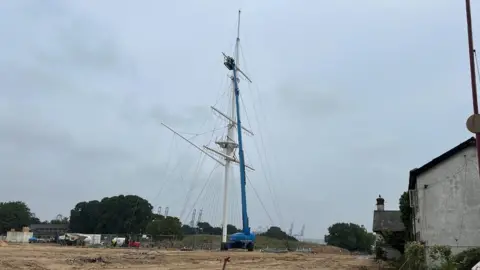 Richard Knights/BBC
Richard Knights/BBCAn Edwardian Grade II listed former Royal Navy training mast is back in position after a lengthy restoration.
HMS Ganges in Shotley Gate, Suffolk, was a training centre for recruits between 1905 and 1976.
The 143ft (44m)-high mast was removed in June 2022 because the site is being redeveloped for housing.
Barry Scott-Webb, a trustee of the HMS Ganges Museum, admitted it was an emotional moment seeing the mast return to the site.
The mast, which was erected on the parade ground in 1907, was used for training 15 to 18-year-old seamen, with each boy required to ascend it.
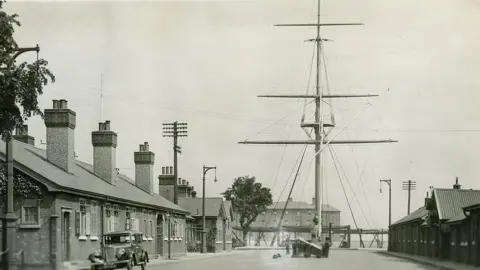 Getty Images
Getty ImagesIn 1967, Blue Peter presenter John Noakes took on the challenge of "manning the mast" to become a "button boy".
That was the name given to a boy who could reach the very top of the mast and stand hands-free with only a supporting bar between his legs.
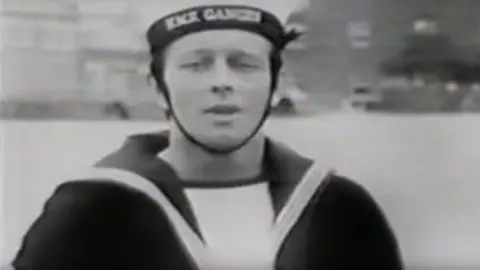
Mr Scott-Webb, who was stationed there in 1962, said: "Every boy had to go up the mast, but not to the button, to the first stage which was the devil's elbow.
"In fact I was the reserve button boy [in 1962]."
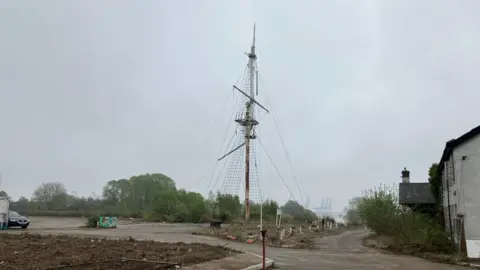 Matt Marvel/BBC
Matt Marvel/BBC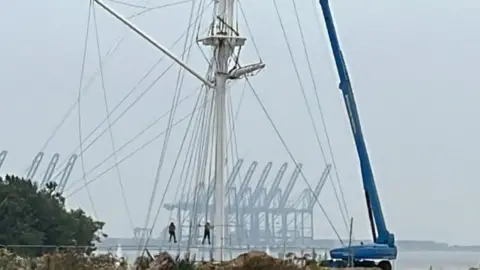 Richard Knights/BBC
Richard Knights/BBCHMS Ganges was the name given to several Royal Navy ships since 1779.
In 1905 it was chosen for a new training base at Shotley Gate, near Ipswich, where about 500 boy recruits were stationed.
Recruit numbers rose to 2,000 during World War Two, but dropped to about 1,000 by the late 1960s and declined further until the base closed for good in June 1976.

Follow East of England news on Facebook, Instagram and Twitter. Got a story? Email [email protected] or WhatsApp us on 0800 169 1830
